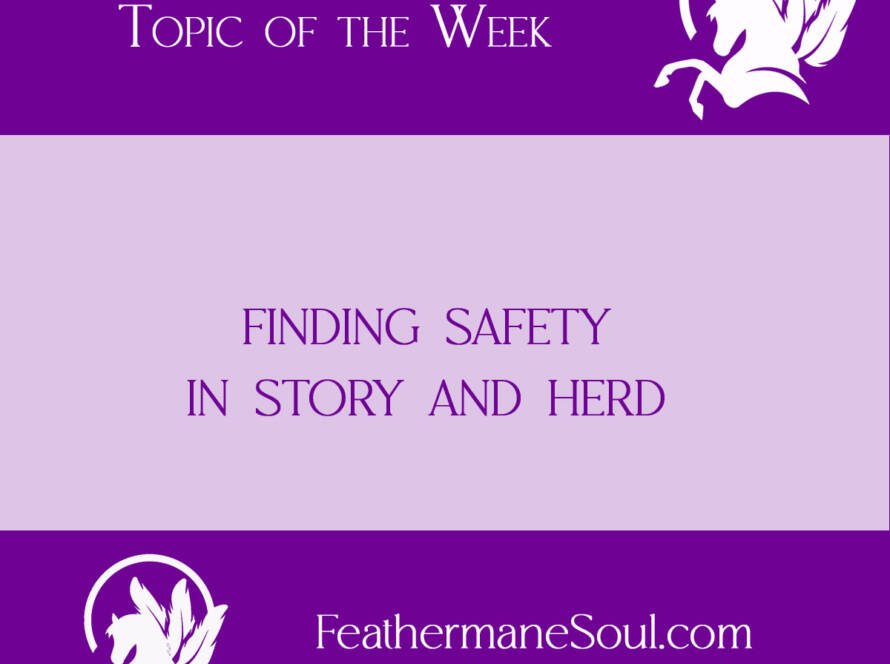The days are becoming longer so when I go out to visit the horses, often around noon to give senior heart mare her lunch, I’ll find the sacred herd under one of their favorite trees standing nose-to-tail so that when one swishes flies, it’ll also take care of the flies that might land on the other’s face. Horses enact community care in other ways. Though they only need to lay flat for around 2 hours a day, and they do this in fifteen minute or so increments, when horses are sleeping one will stand watch. Left to their own herd dynamics, horses practice community care.
Much of the community care that horses practice could be attributed to the fact that in the while they, like other large herbivores, could be considered prey animals. Keeping watch while the others are sleeping just seems to be a good way to keep the herd together and alive. And yet, humans aren’t considered prey animals and we need community care too.
The thing about horses, and humans, is as our society has evolved, we’ve lost a large portion of our ability to offer community care. Horses kept in stalls for a large portion of the day often don’t get the benefits of herd interaction in addition to some of the other concerns, like feeding schedules that are designed for humans, not horses that can cause digestive upset. Our society, especially here in the West, has become much more individual-focused rather than community-focused, driven in large parts to concepts like predestination and in America, rugged individualism.
When the health of each member in a community suddenly becomes the responsibility of each individual, rather than the “herd”, then it is easy to lose sight of community care.
A good example of this is even if you outfit a horse in the highest quality fly sheet and fly boots, if in a herd environment (and assuming the other members of the herd leave the “clothing” alone), the horse will still stand nose-to-tail with its herd mates. It won’t look at the other horses and say, “I’m not dealing with flies, so your flies aren’t my problem.” It knows when every member of the herd is free of flies, then it won’t have to worry.
Community care is like that, too. When every member of the community is fed, housed, and has all medical needs taken care of, then the community is strengthened. When the community protects trans individuals, it protects everyone because the issues facing trans folk don’t just affect them.
This week, while I’m watching my horses, spending time with them, and making sure that they have plenty of water as the temperatures rise, the lesson I’m receiving and sharing with you is a reminder about community care.


